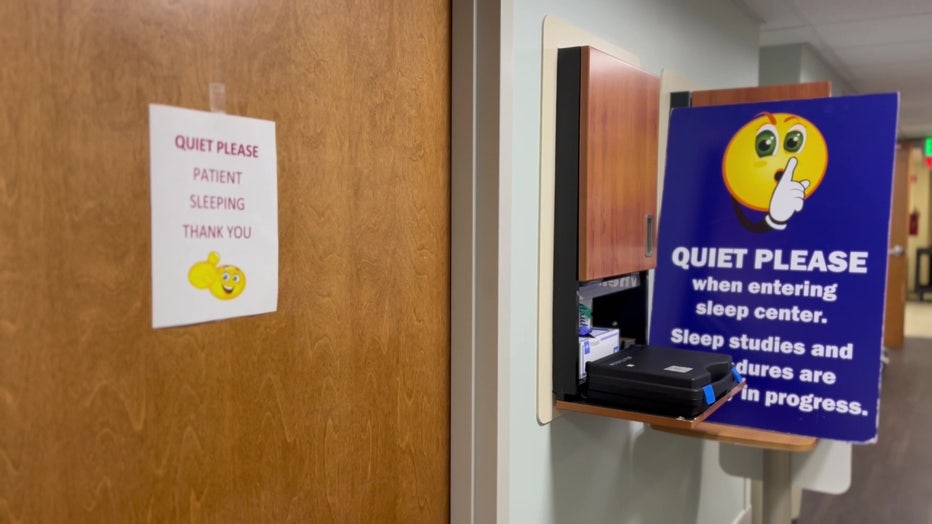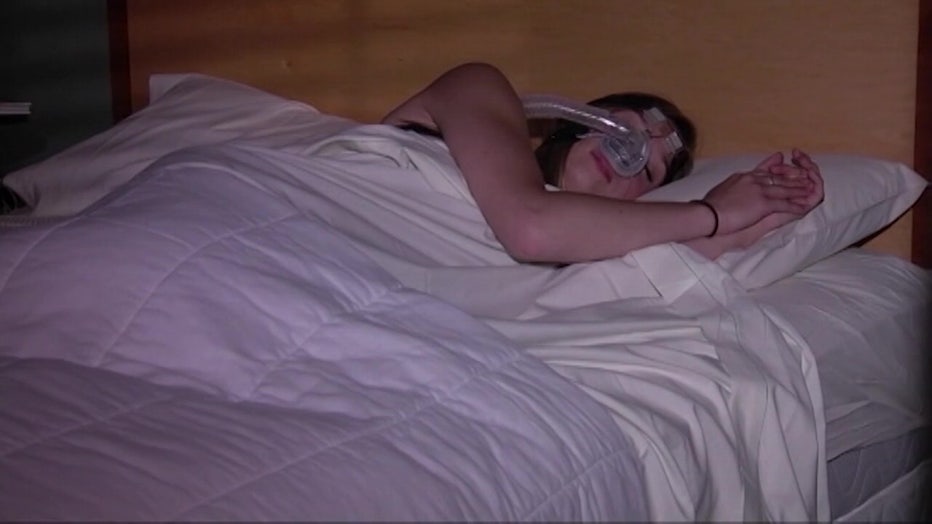Sleep apnea treatments change patients' lives
TAMPA, Fla. - We all need sleep to function, but for many people, sleep includes snoring.
Millions of people actually stop breathing while they sleep. If it’s long enough, it can cause some long-term problems while awake.
Sleep apnea is more common than you may think. Carmen Maldonado suffered with it for years.
"The gaining of the weight because of course I wasn’t sleeping enough. I was always tired, so I wasn’t exercising," she explained. "My mom actually got scared one night. She said that I just stopped breathing, and she got scared, but she didn’t know how to wake me up."
Donnie Rutherford also struggled to sleep well.
READ: What to know when it comes to sleep products
"After my body would shut down I’d jump in the bed like that and wake up, and I’d think somebody was breaking in to my house," he said.
Maldonado and Rutherford are among the roughly 30 million people in the U.S. affected by sleep apnea. Dr. Ashok Modh with Tampa Bay Sleep Center diagnosed Maldonado almost 20 years ago. He explained what happens when you stop breathing during sleep.

"I’ve had someone almost in the 80 to 90 second range and then the brain kicks in and finally says I’m starving for oxygen," Modh shared.
Dr. Tapan Padhya is a sleep surgeon with USF Health and Tampa General Hospital. He said it can also affect your heart.
"The more severe your apnea, you can have stress on your heart, stress on your blood circulation to your brain. We do see some correlation with high blood pressure," explained Padhya.
Sleep apnea is more common than you’d expect across the age groups.
"Now that sleep surgery is common for sleep apnea treatment, we’re getting the whole age range, from late 20s all the way to 90-year-olds," said Padhya.
READ: Breast cancer risk assessment tools could be lifesaving
If you’re wondering about your own sleep, you can start off with what you might already wear every day.
"There’s a lot of wearable devices whether it’s Garmin, Apple watch, things that sit on your nightstand, they can give you an idea of if there is a sleep problem," explained Padhya.
Then check in with your primary care doctor or a sleep specialist. For Rutherford, treatment was life-changing.

"When your body shuts down like mine was shutting down I’m taking minutes off of my life," he said. "I think this is one reason I’m still here."
READ: Strep throat: How serious can it get?
Maldonado's quality of life and health improved too.
"It’s working wonderful because I can sleep better. I have more energy when I wake up. I’m not as tired or as sleepy as I was without the CPAP machine," she said.
That’s what doctors like Modh want to hear.
"Every time they come in to see me they say this thing is the best thing that happened to me. That’s very satisfying," said Modh.
SIGN UP: Click here to sign up for the FOX 13 daily newsletter
WATCH FOX 13 NEWS

